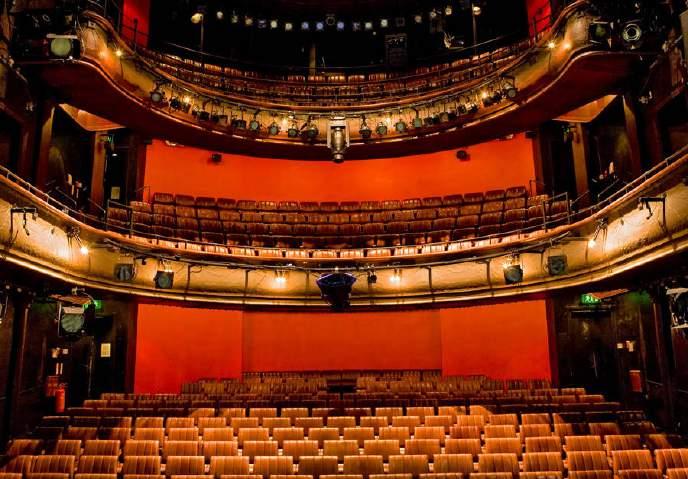
2 minute read
From Somerset to Belfast: a tale of Jewish life Mischa Gerrard
Growing up in rural Somerset, my family members were the only Jewish people I knew, and it wasn’t until I went to university that I met other Jews my own age. Many Jews gravitate towards cities containing established Jewish communities, granting them a feeling of something shared – whether that be faith or culture. However, I was brought up outside of a Jewish community, in an area in which my family were more often than not the only Jewish people I knew or had ever met.

Advertisement
Expressions of faith were, throughout my childhood, in the absence of a synagogue to worship in, limited to the home, to candle lighting (when remembered) on Friday nights, to my dad encouraging us to sing the Ma’oz Tzur off of our phone screens during Hanukkah. I also came to witness a phenomenon whereby my Jewishness, which in a community containing other Jews would not have provoked interest, instead came to be seen by others as my primary identity, and I became identified first and foremost as a Jew. This was especially the case throughout my time at school and felt rather ironic that – given the alienation I felt from my faith– I should come to be seen as so Jewish by others.
At school my Jewishness was always a point of interest and curiosity, and I was happy to share what I knew about my faith and educate others. However,
I often found myself feeling let down by the religious education that was provided by teachers who’d never met a Jew before and had made seemingly little effort to educate themselves on Judaism, instead relying heavily on vague stereotypes and a blurry concept of what constituted a Jewish person. These classes were at best inaccurate and at worst harmful; I can recall several occasions in which they actively fuelled antisemitic sentiment that was directed towards me by classmates. Antisemitic myths were propagated due to ignorance and presented to impressionable teens as fact without consideration of their impact. Such was the case with a lesson in which an RE teacher made the claim that the Jews killed Jesus, and another in which the same teacher, upon being asked how the Nazis knew who was Jewish, singled me out in class and outlined how I would have been identified as a Jew by the Nazis because of my “Jewish” nose. Something as simple as laziness may have been at the core of their failures, but irreparable harm was caused as a consequence, as my classmates accepted at face value what they were taught, missing out on an invaluable opportunity to learn about the Jewish tradition and potentially break the cycle of ignorance.
Now, as a university student, I live in Belfast, a deeply divided society in which people have traditionally segregated themselves across religious lines. I feel it relevant at this point to recount a conversation I had during my first week there. I was at a social event designed to introduce new students to others in our department when mid-way through a conversation I was asked whether I was Protestant or Catholic. I responded saying I’m Jewish, to which the asker of the question then reiterated, asking me “Well, are you a Protestant Jew or a Catholic Jew?”.
In Belfast I have found once again that many instances of antisemitism are not fuelled by hatred but by ignorance and a preoccupation with the city’s own religious divisions. Living in an area so dominated by religious tensions, I see education as more necessary than ever as a tool to aid our tolerance of one another.









